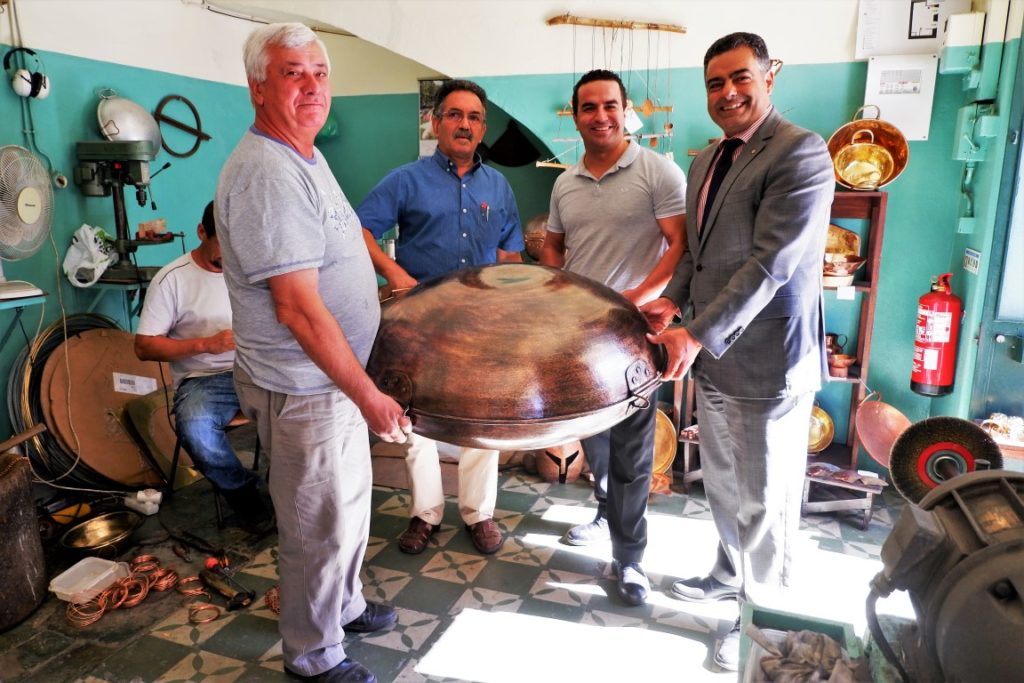 With “10 to 12 kilos of seafood” and what is – probably – the “largest artisan cataplana ever made in the Algarve”, a group of diners of “70 or 80 people” is served. The Vila Vita Park tourist development invested in a “giant” cataplana, 90 centimeters in diameter, made “by hand” (read, hammered) by Analide Carmo and Francisco Dias, the last boilermakers in Loulé. The piece has even been used.
With “10 to 12 kilos of seafood” and what is – probably – the “largest artisan cataplana ever made in the Algarve”, a group of diners of “70 or 80 people” is served. The Vila Vita Park tourist development invested in a “giant” cataplana, 90 centimeters in diameter, made “by hand” (read, hammered) by Analide Carmo and Francisco Dias, the last boilermakers in Loulé. The piece has even been used.
Last Friday was special at the old Caldeiraria Louletana, located on Rua da Barbacã, next to the Castle wall and in the heart of the historic centre, which went back to being a boilermaker's workshop a few months ago.
This was the day the two artisans delivered their masterpiece to the customer, a piece that took 14 days to be molded from two copper sheets measuring one square meter. And it took “many thousands of hammer blows” for the voluminous cataplana to take shape and be ready for use.
Special or not, the day, for Analide Carmo, was also one of work. While the customers arrived and did not arrive, the master boilermaker advanced another cataplana, this one of “normal” size, with accurate and rhythmic hammering and maximum concentration.
The greetings that arrive are thrown between blows, with a smile on the lips. But there is also time to talk, both with the customers who have arrived in the meantime, and with the Sul Informação, with the tools already resting on the bench – “let me just finish this career”.
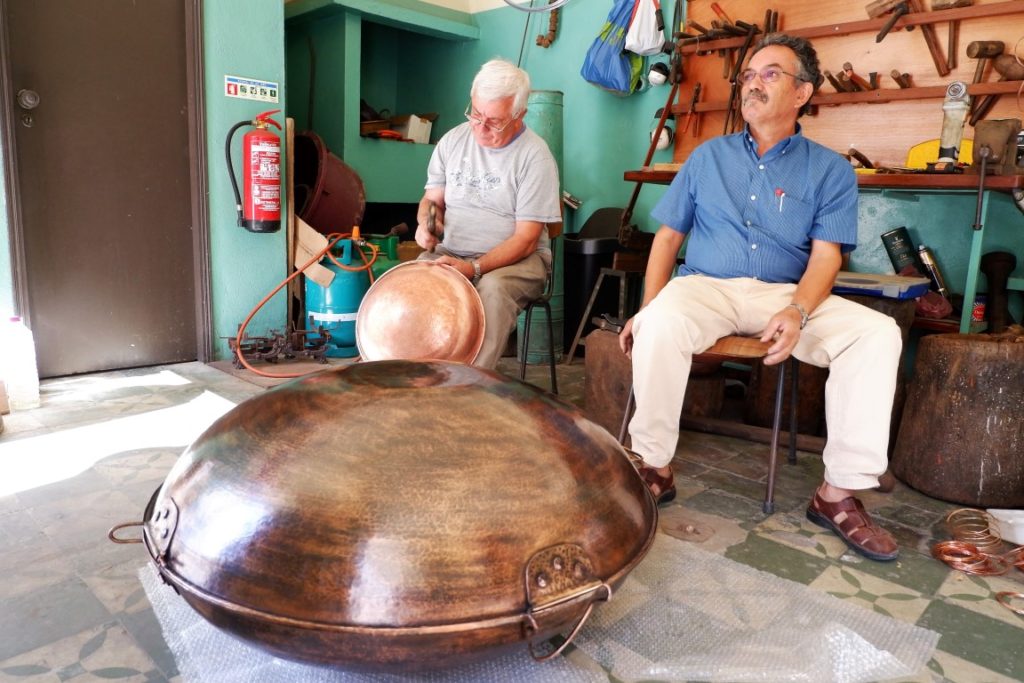
«It was a lot of work that we had here. It was the biggest we've made so far and I don't believe there's another one of this size in the Algarve, handcrafted», says Analide Carmo. The master boilermaker even earned a nickname: «when it was the White Night, the people who passed by the door called me the King of the Hammer. It was hammering all night», he said, in good spirits.
So much fatigue and the epithet paid off, given the reaction of Paulo Fortes, Head executive of resort of luxury Vila Vita Park, and Óscar Correia, director of Food & Beverage of this hotel unit. There was no lack of praise for the work of the Loulé boilers and for the piece that, the following day, would be the central element of a dinner that was served to a group of 300 people.
«We already have the culture of cataplana, it is part of the menu of one of our 10 restaurants. But they are cataplanas for two, four, eight people. We wanted to have something really big, to give our guests, in large groups, the possibility to taste this delicacy», he explained, adding that it was the Head Manfred Kickmaier who closely followed the development of the piece.
«With this cataplana, if it is the only dish to be served, it can feed 70 to 80 people. If it is part of a menu with other things, it will give to many more», added Paulo Fortes.
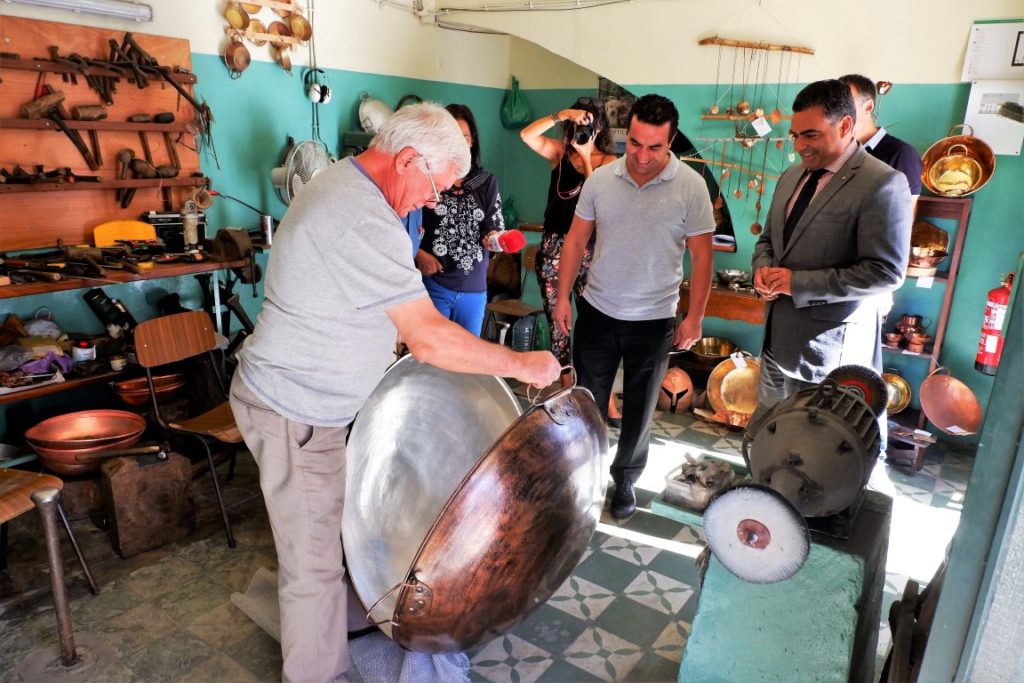
The order for this piece is the result of a partnership between Vila Vita Park and the Loulé boilermakers, mediated by TASA project.
«We want to bring what is Portuguese into Vila Vita. And we have always thought of taking advantage of what the local community has to offer and betting on a culture of tradition, to better make known what is done in the region», explained Óscar Correia. Basically, it's about having “original stories to tell”, using “raw materials from the region”.
For the Loulé boilermakers, this was "a first experience", which was, above all, a "marketing action", through a partnership with one of the most renowned hotel units in the region, well known for its gastronomic quality (a of its restaurants has two Michelin stars). But Analide Carmo does not reject making other cataplanas of this size or even bigger, although at the moment conditions do not allow it.
“We would have to have taller anvils. We would have to be lifting them to be able to hit them”, he explained.
In addition to this special order, the Loulé Boiler Workshop has been in great demand. There are the pieces that customers who come in regularly take, among those that are displayed on the walls, there are orders, such as the one that master Analide was dispatching before talking to the Sul Informação.
In this case, it was "a lady who asked for two cataplanas, one small and the other larger, for 8 or 10 people." And there's more work in the gutter – hence the constant presence of the hammer sound.
«It's been going well. We also have here a great help from the City Council of Loulé, as we do not pay for the facilities, nor for electricity, nor for water. For the rest, from what I have done, I have sold practically everything. Many foreigners come here. Those who buy the most are the Dutch, Germans, Americans and English. The French and the Spanish are more to see», he revealed.
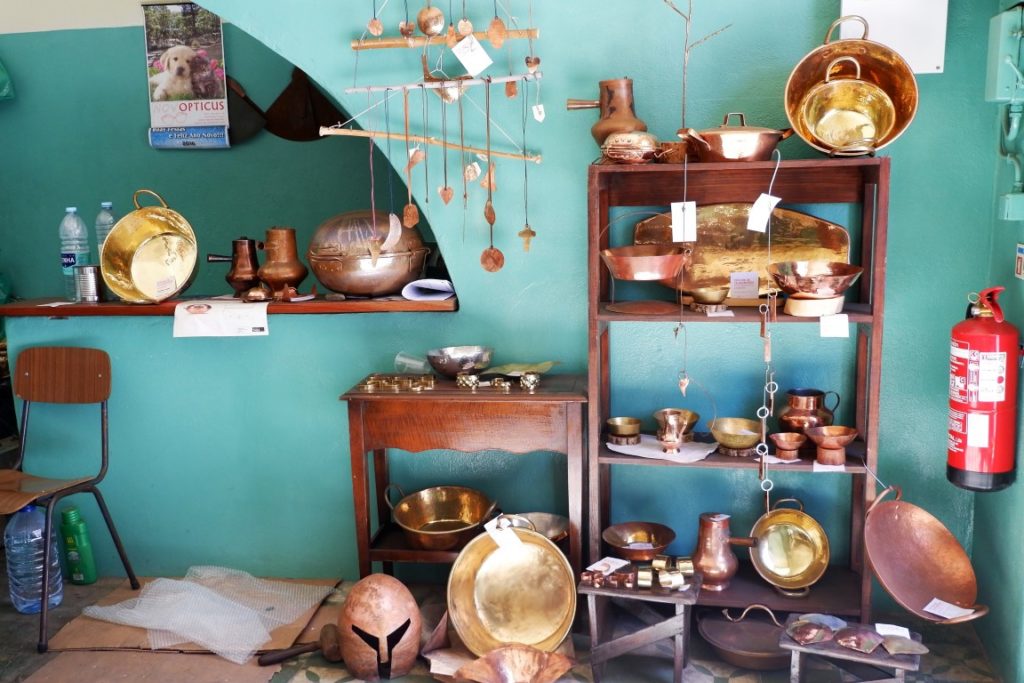
Analide Carmo also recalled how she got to speak with the client Vila Vita Park, resort luxury hotel located on the coast of the municipality of Lagoa. «It was here Mr. João [Minister], from TASA, who brought them and came to help us. O Head came here to ask if we were capable of doing it, we said yes, and so it was done, with the exact measurements they asked for», according to Analide Carmo.
The recovery of this craft, which was in danger of extinction in this municipality and in the Algarve, was achieved through the Loulé Criativo project. It was within the scope of this initiative of the Chamber of Loulé that it was promoted a course on boilermakers, to try to find people interested in keeping this art alive..
In a first phase, those responsible for this project discovered the master Analide Carmo, who was a boilermaker's apprentice in his youth, and Francisco Dias, who also had experience working with copper. Now, the knowledge continues to be passed on to their apprentices in the boilermaking course, who also work in the workshop and are expected to guarantee the continuity of this craft in Loulé.
Photos: Hugo Rodrigues|Sul Informação
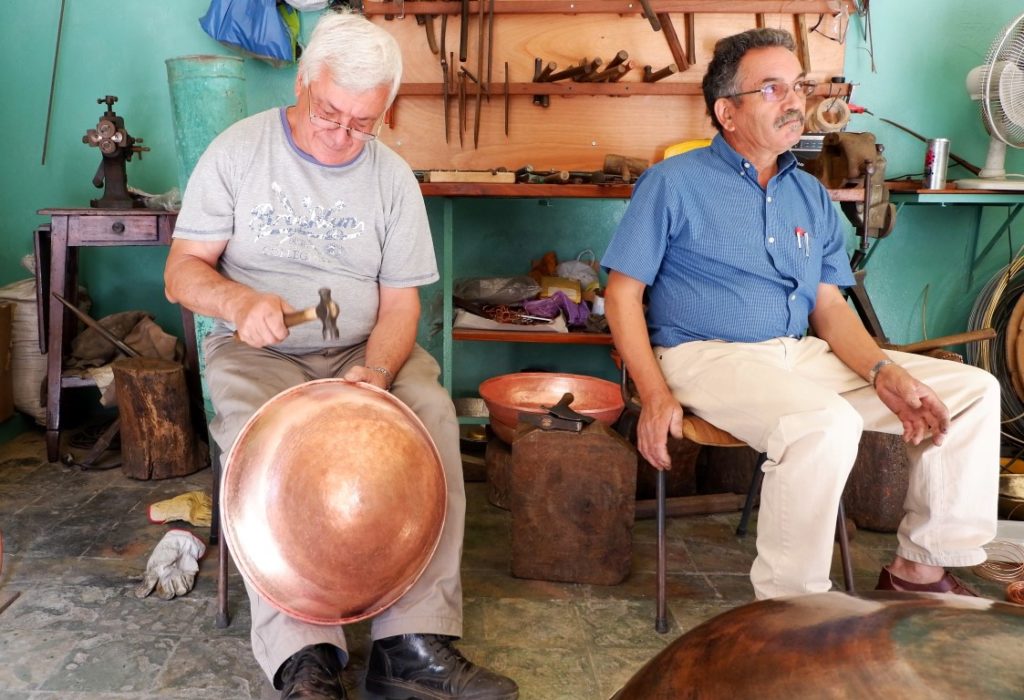
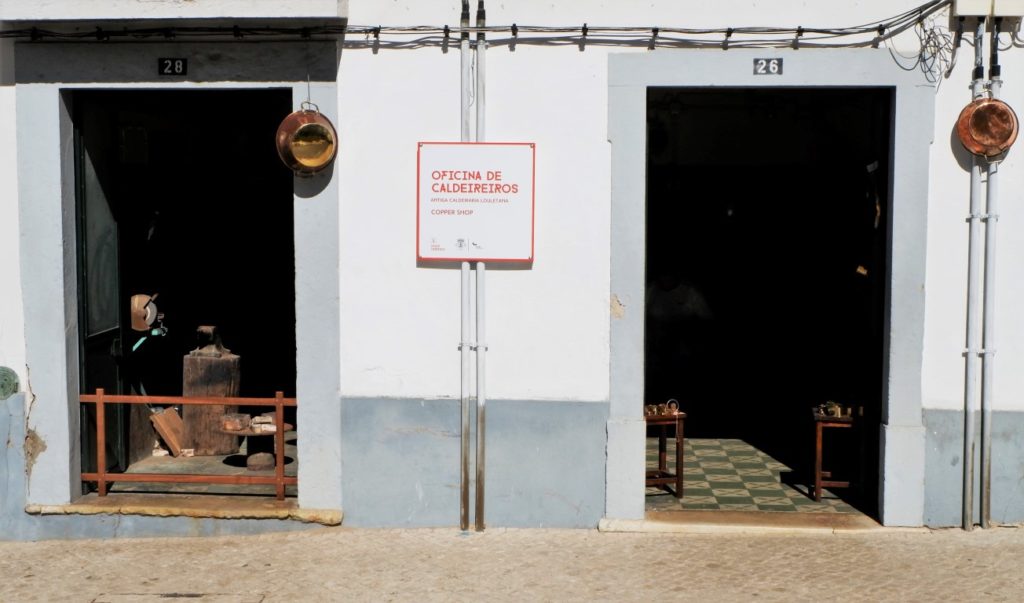
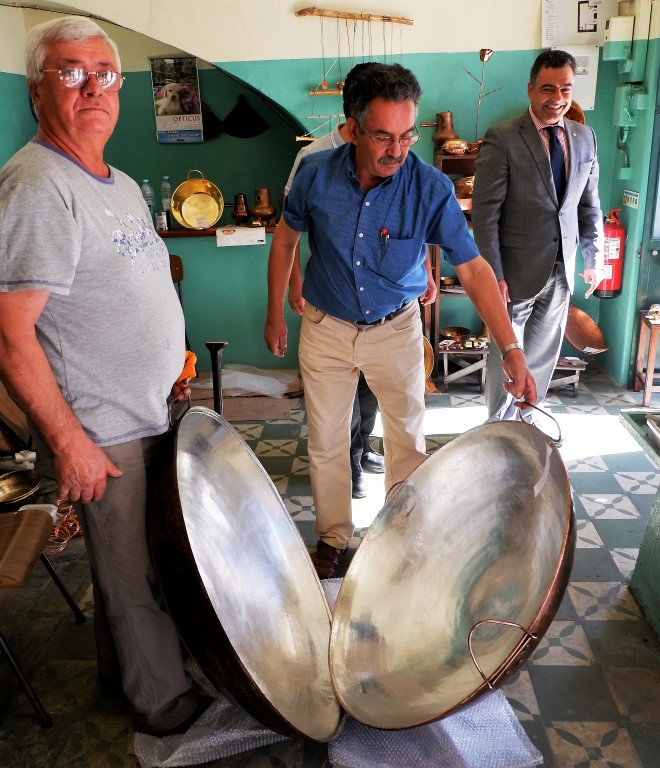
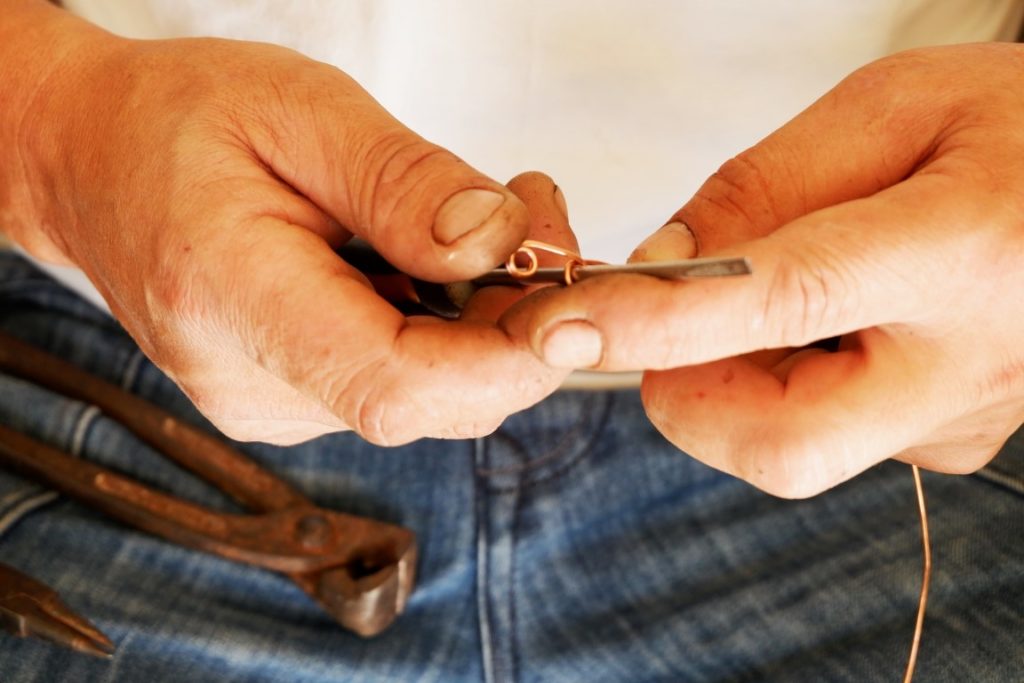
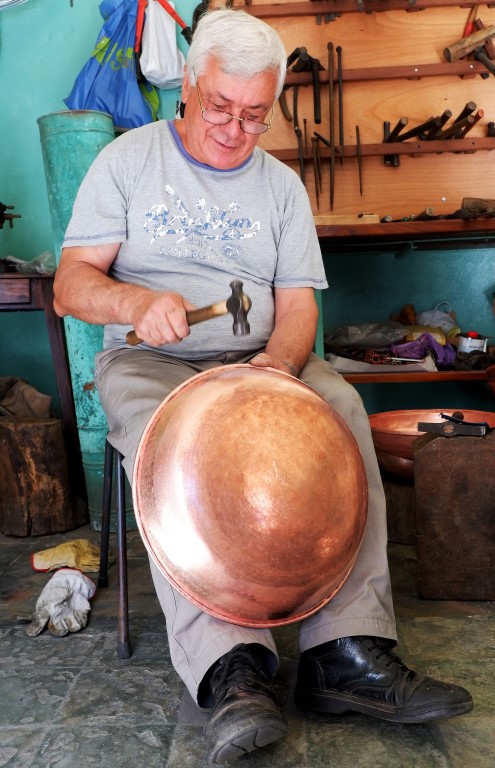


















Comments